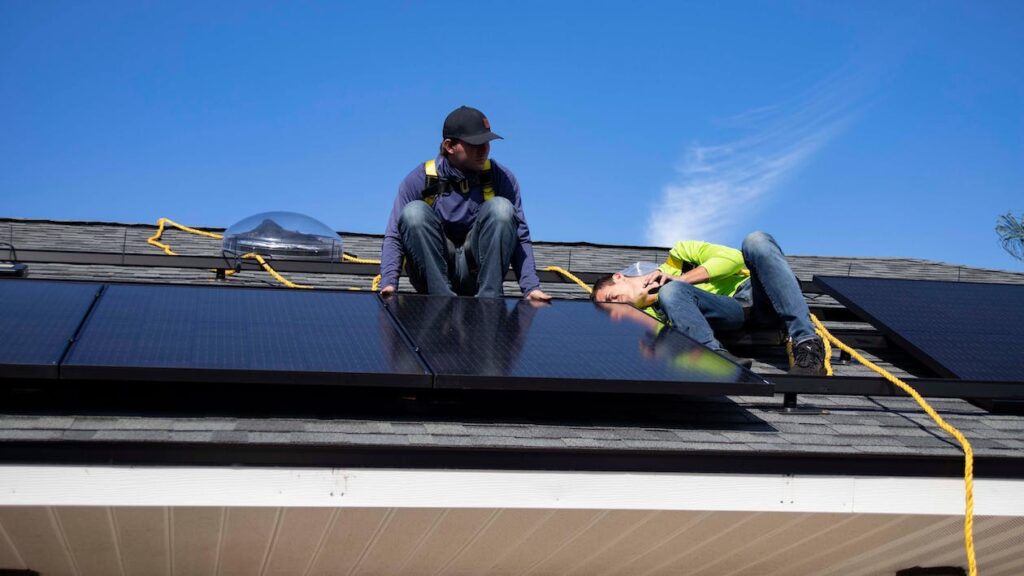New Regulations on Rooftop Solar Present Obstacles to Decarbonization
California’s ambitious decarbonization efforts faced a significant hurdle due to a new policy decision that could discourage many electric customers from investing in rooftop solar installations. This development poses a challenge to the state’s strategy for reducing carbon emissions, as rooftop solar is a critical component in achieving its decarbonization objectives.
Rooftop solar systems allow individual homes and businesses to invest in carbon-free power, contributing to the energy resilience of the power grid. These installations are integral to California’s plan to become carbon neutral by 2045. In line with this goal, the California Air Resources Board released a scoping plan last year, which included targets of 3 million climate-friendly homes by 2030 and 7 million by 2035.
However, the California Public Utilities Commission’s recent decision to reduce compensation for new rooftop solar installations with multiple meters, such as those on schools, apartment buildings, and farms, marks a significant setback. Previously, these solar customers could offset their power consumption with the power they generated through a virtual net-metering program. The new ruling denies them this offset, effectively altering the financial dynamics of these projects.
While the new proposal still permits net-metering for individual apartment units, it excludes common areas in apartment buildings, like hallways, gyms, and outdoor spaces, from similar benefits. This change significantly extends the payback period for rooftop solar projects, rendering many financially unviable.
The impact of this policy change extends beyond the immediate loss of potential solar capacity and grid resiliency. Downstream decarbonization initiatives, such as the development of electric vehicle infrastructure, are also likely to be adversely affected due to the reduced solar generation.
Nancy Chaires Espinoza, Executive Director of the School Energy Coalition, expressed concerns in a press release by the California Solar and Storage Association: “We cannot install rooftop solar on school sites, convert district vehicle and bus fleets to electric vehicles, and install charging infrastructure in parking lots without any financial benefit to help us finance these significant investments.”
Before the vote, various stakeholders, including renters, schools, farmers, and developers, voiced their opposition to the proposal. Groups like Livermore Indivisible and the East Bay Clean Power Alliance were among the advocates decrying the changes.
In response to this setback, the state is now looking toward its legislators to realign its decarbonization trajectory. There is a growing call for the compensation programs for both single-family and multiple-meter rooftop solar installations to be re-evaluated. Californians are encouraged to reach out to their Assemblymembers and Senators through findyourrep.legislature.ca.gov to advocate for this cause.
This policy change represents a crucial moment for California’s decarbonization path. The decisions made now will have long-lasting implications on the state’s ability to meet its climate goals and transition to a sustainable, low-carbon future.






